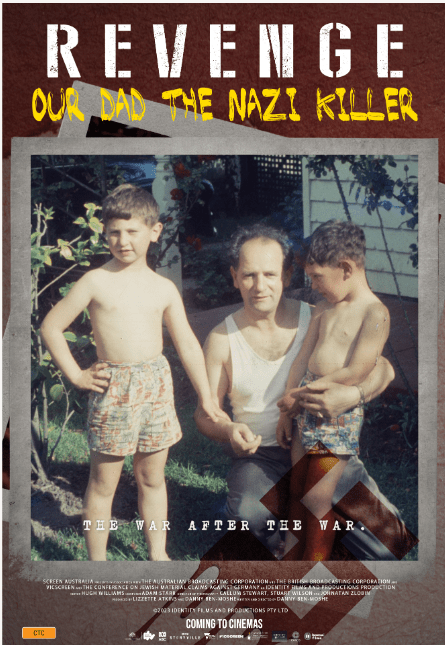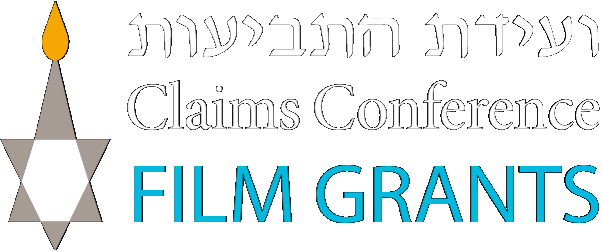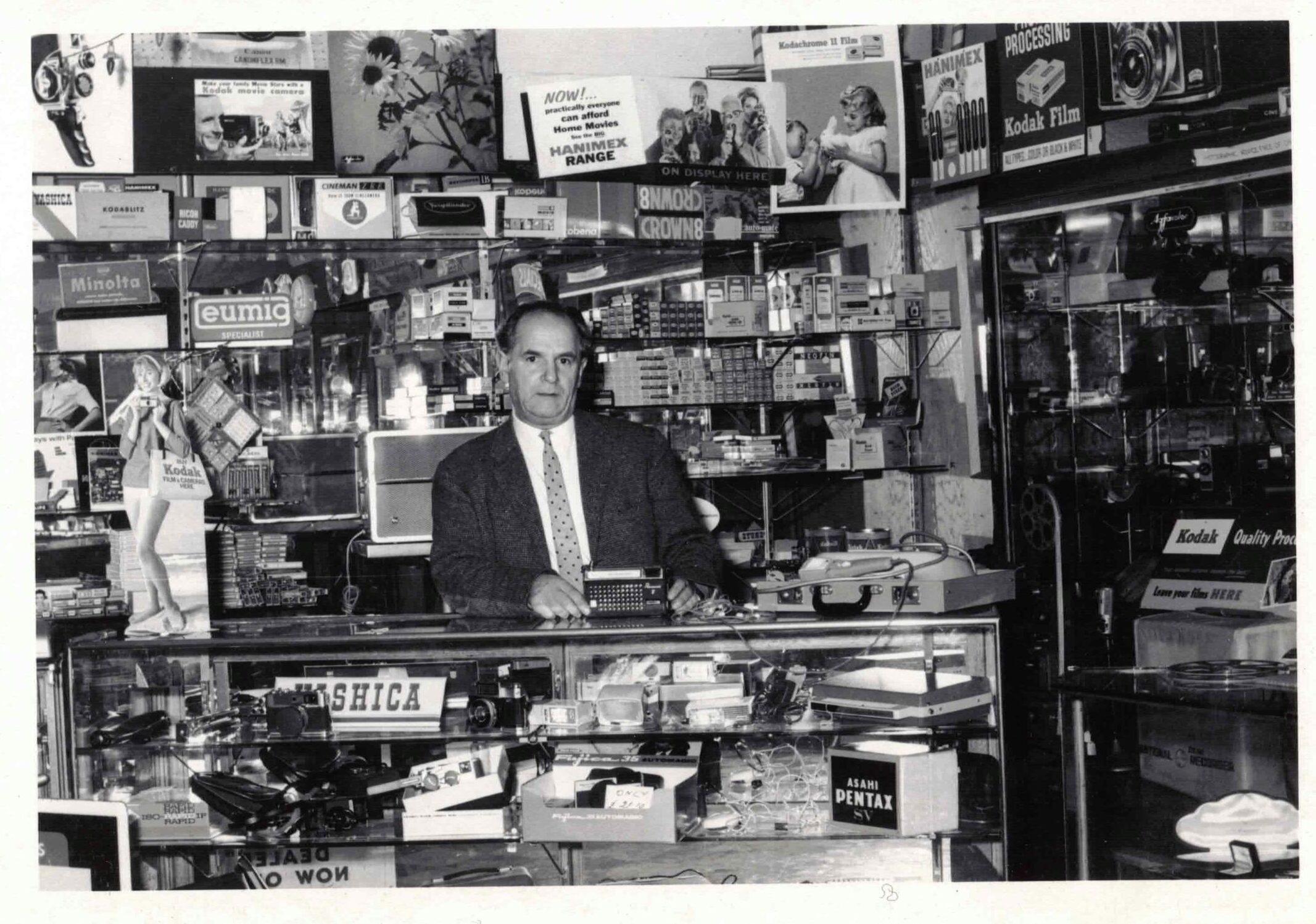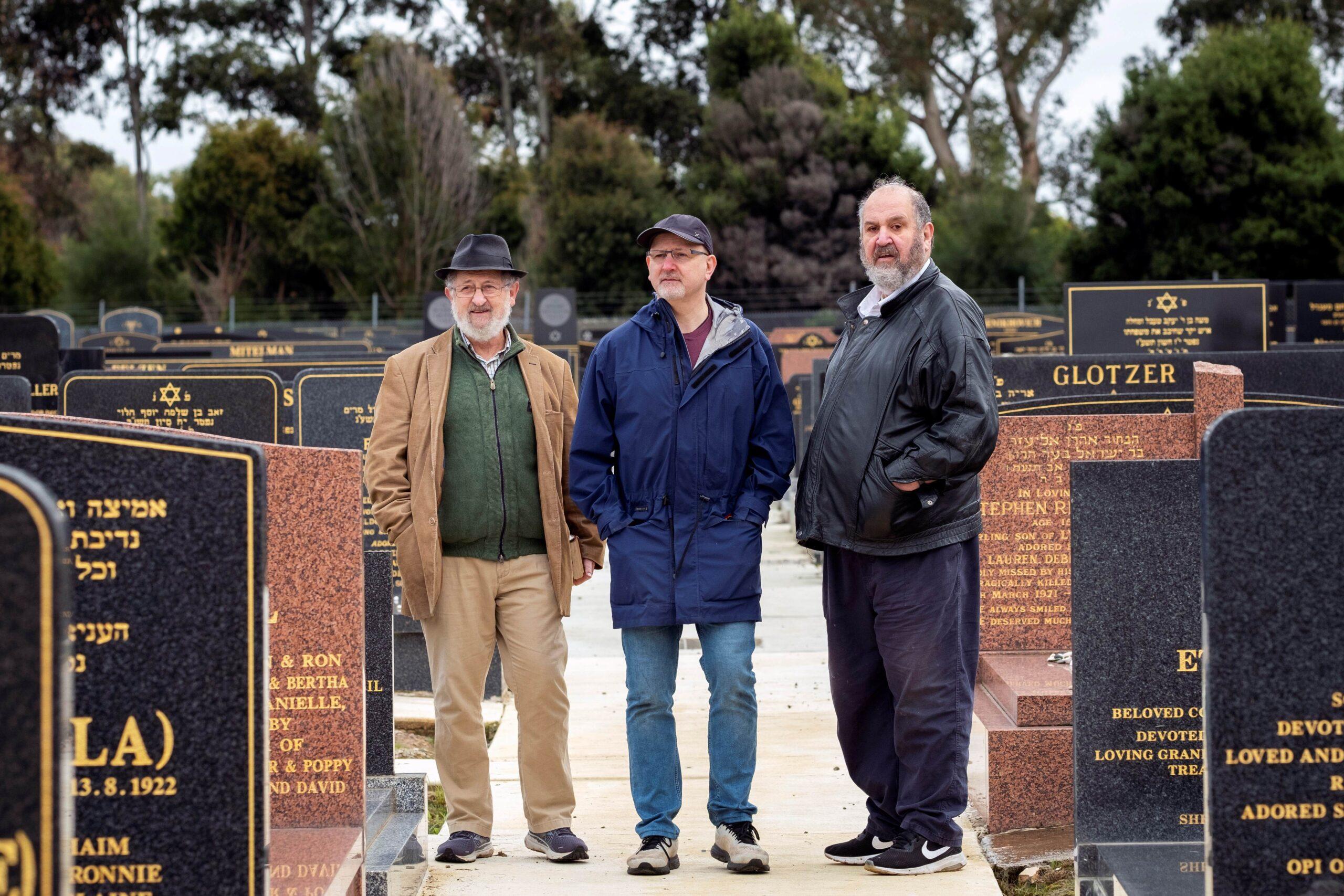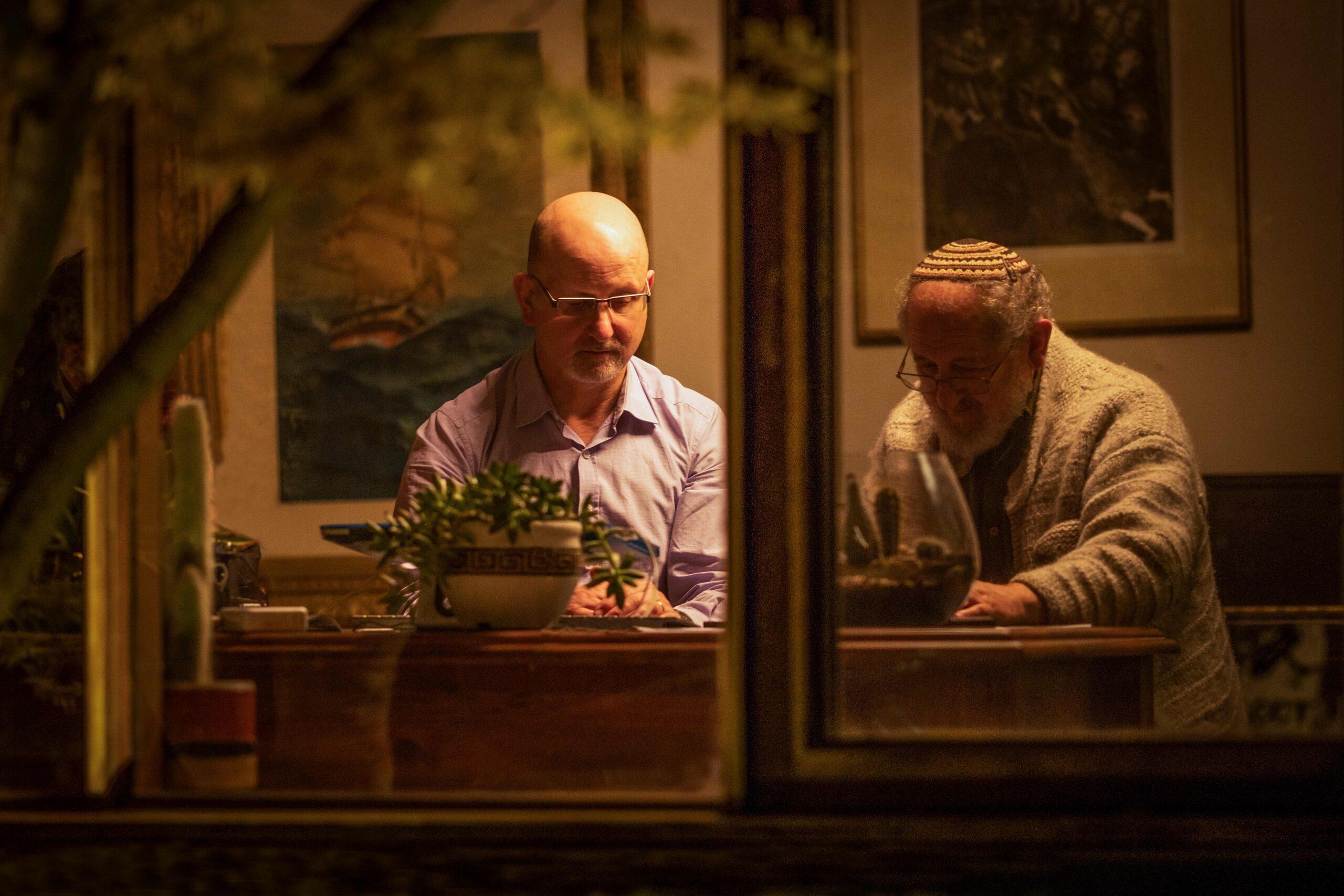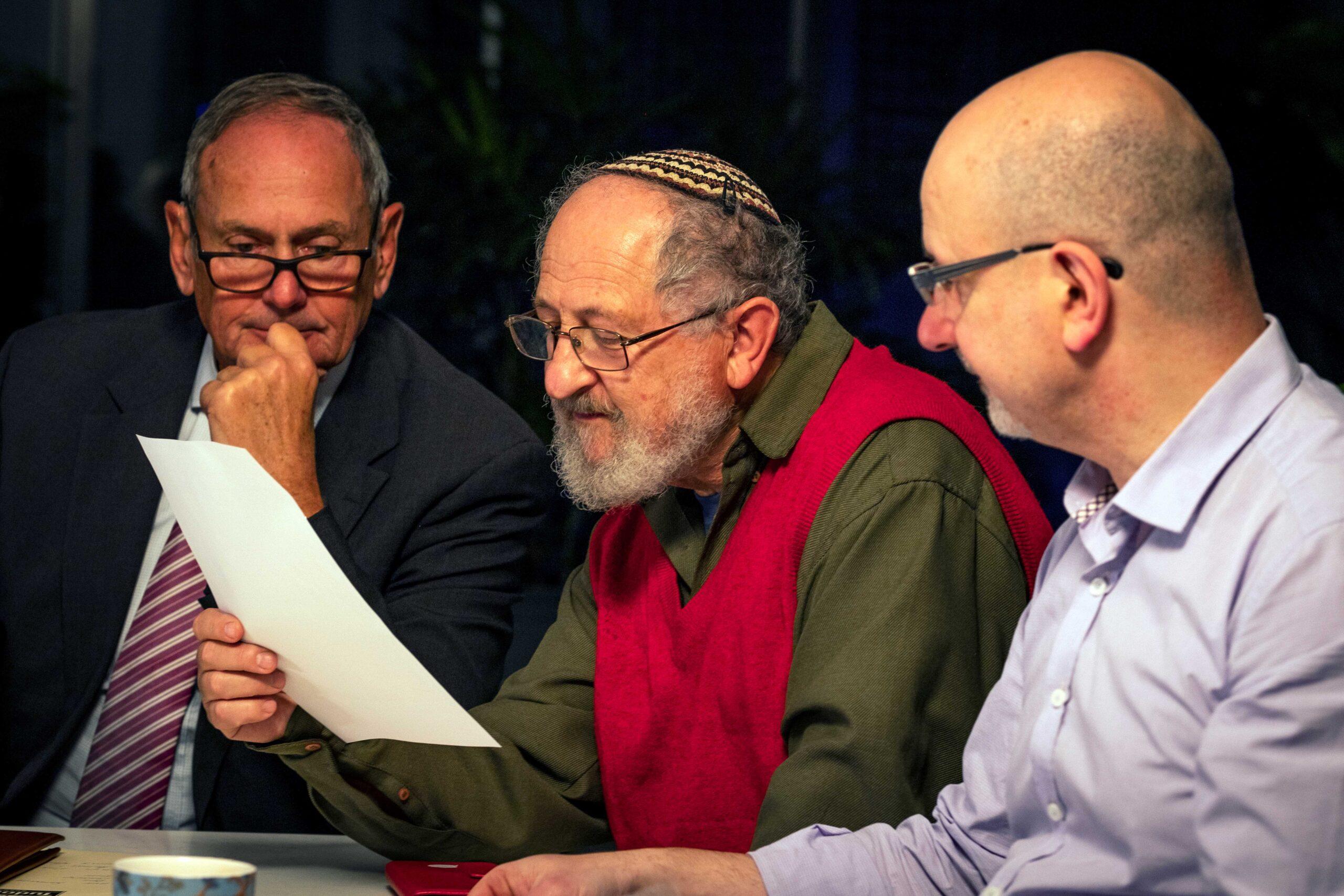Three brothers discover their Holocaust survivor father allegedly killed a Nazi in Sydney after the War, and as they set out to find out if this is true, they uncover a story/history of Jewish vigilante networks and the mysterious death and disappearance of hundreds of Nazis in Australia.
Synopsis
REVENGE: OUR DAD THE NAZI KILLER is an observational feature length murder mystery documentary that follows three Jewish brothers who stumble on a family secret: their father, a Holocaust survivor and WWII partisan, went to Sydney in the 1950s to undertake a revenge killing
against a Nazi. As they delve into the past, they unexpectedly unearth a web of Nazi networks Down Under, covert Jewish vigilante groups, and multiple cases of Nazis who mysteriously died or disappeared in post-WWII Australia. All of this occurs in the context of Cold War intrigue, with anti-Semitism at the highest level of government.
About the Director
Award-winning producer and director, Danny Ben-Moshe is one of Australia’s foremost filmmakers, whose work is known globally. His acclaimed films have screened on leading networks around the world, including multiple prime time documentaries for the ABC and SBS in Australia where he is based. His films have also featured on networks globally from PBS in America (OUTBACKRABBIS, 2018), SVT in Europe and NHK in Asia (CHINA’S ARTFUL DISSIDENT, 2019).For BBC Storyville Danny made the high-rating MY MOTHER’S LOSTCHILDREN(2017), an epic family saga told across five continents and six decades about a family thrown into turmoil after 2 children reappear after 40 years, which was reviewed as Critics Choice in The Sunday Times and “a breath of fresh air” by New Statesman. Danny won Australia’s top documentary prize, the Walkley Award, for his film, CODE OF SILENCE, which lifted the lid on sex abuse in the ultra-Orthodox Jewish community. Danny’s other feature length documentaries include CARNABY STREET UNDRESSED (Yesterday Channel, 2011) which had a four star review in Time Out, and SHALOM BOLLYWOOD: THE UNTOLDSTORY OF INDIAN CINEMA which premiered at the Mumbai Film Festival (2017) and was reviewed by the Hollywood Reporter as “lively, upbeat and entertaining.”
Artistic Statement
While the story about Nazis fleeing Europe to South America after WWII and then being hunted down has been well documented, Nazi collaborators from across East and Central Europe headed to other countries like Australia. Up to 5000 settled in Australia in the aftermath of World War II, falsely entering the country as genuinely displaced people in the wave of 180,000 East and Central Europeans who arrived in Australia. It made sense that if you were trying to get as far away as possible from war crimes you had committed, Australia was a good destination.
However, Australia also had the highest number of Holocaust survivors, per capita, anywhere in the world outside of Israel–a community of over 30,000. Many literally saw the murderers of their families or brutal guards from the death camps on Australian suburban streets–eyewitnesses who experienced this appear in the film. This is the murky world of post WWII Australia–where Nazis on the run and Holocaust survivors found themselves in a new land, sometimes living cheek by jowl, is the setting in which the story unfolds. I have personally wondered how survivors of the Holocaust moved on and how they could do so knowing so many Nazis escaped justice and lived freely despite their horrendous crimes. In many respects I found this incomprehensible. For me this was more than a theoretical deliberation, for it was part of my own family’s history. On my maternal side the entire family were wiped out in a Lithuanian death pit, but we descendants just carried on with our lives. On my paternal side my grandfather was part of the British military forces in Bergen Belsen. I recall as a child seeing the photograph she took there and the piles of emaciated bodies. Yet after the war he returned to the UK and led an everyday life, despite having seen first-hand what the Nazis did. I never asked him why he never sought revenge, but it was a question I often pondered.
The story also opens up a vexed moral question I find compelling: When, if ever, is it legitimate to take revenge? What would you do if, like Boris’ brother Fima, you found out the murderers of your wife and child were walking free and the government were doing nothing about it? Indeed, the film will show, at first the Australian Jewish community went to the police and government authorities to act, but rather than do so they would literally tip off these Nazis that their identity was known, prompting the Nazis to relocate.
As the film will expound upon, the ASIO director during this crucial post-War period, Brigadier General Spry, was in my opinion and the opinion of many others, a rabid anti-Semite. What does one do when the legal authorities act immorally? What do you do when a war criminal is in a country under false pretenses, claiming to have been a bona fide refugee by concealing their Nazi past, and despite overseas government requests to extradite them, the Australian Government refuses to take any action against them? I have reflected on these questions and the film teases them out through key cast. It is also relevant to note that the issue of war crimes, genocide, and refuge tragically did not end with the Holocaust. Australia, like other Western countries has had, and continues to have, victims and perpetrators of post-Holocaust genocides settle on its shores. Examples include Iraq, Sudan, former Yugoslavia, Cambodia and others. The questions the film raises are therefore not just of historical curiosity and particular to the Holocaust, but have universal relevance today.
Festivals, Screenings, & Awards
Santa Barbara Film Festival
Jewish International Film Festival
UK Jewish Film Festival (2023) – Nominee, Best Documentary Award
Miami Jewish Film Festival (2024) – North American Premiere
National Center for Jewish Film Festival (2024)
JCC Chicago Jewish Film Festival (2024)
Jüdisches Film Festival Berlin Brandenburg (2024) Documentary Film Competition
Year
2023
Film Type
Documentary
Film Length
1 hour 30 minutes
Language
English
Production Country
Australia
Production Company
Identity Films and Productions
Distributor
Cargo Film and Releasing
Director/Producer/Writer
Danny Ben-Moshe
Producer
Lizzette Atkins
Cinematography
Callum Stewart
Editing
Hugh WIlliams
Music
Adam Starr
